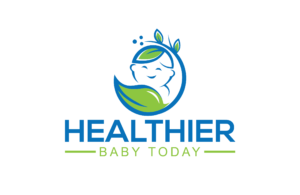Did you know that exercise can lower the chances of postpartum depression? Yes, that’s right! Post-partum exercises work wonders. These exercises not only help you recover after having a baby, but it also reduces stress and anxiety. As a new mom, you should know there’s no shortage of these mental health challenges. Get ready – we talk about whether you’re ready, how to craft a postpartum workout plan, after care tips, challenges, and how to overcome them.
Table of Contents
Introduction to Postpartum Fitness

Do you want to bounce right back after having a baby? Well, it doesn’t work quite like that. You first need to restore your energy and strength. Pregnancy changes much more than your hips or stomach. Let’s start with assessing if you’re ready!
Getting Started: Assessing Your Readiness
So, you’re ready to start exercising? That’s great! But your body needs some time to heal.
Tips to assess if you are ready:
- Talk to your doctor: Doctors recommend that you wait 6-8 weeks after a vaginal delivery and 8-12 weeks after a C-section. If you had any complications during or after delivery, doctors will tell you when it is safe to move your body again.
- Listen to your body: Yes, a doctor’s go-ahead is important, but your body needs to feel ready!
If you experience any of the following, stop and contact your doctor:
- Pain
- Discomfort
- Increased bleeding
- Dizziness
- Large clots
Creating Your Postpartum Workout Plan
Let’s talk about workouts! Remember that these workouts are not about your weight or how your body looks physically. It’s about feeling strong and energized to take care of your baby.
Low-impact activities are what you need! Here are a few:
- Walking
- Cycling
- Swimming
Core Exercises for Postpartum Recovery

Your core is considered your powerhouse and needs some TLC after giving birth, especially if your ab muscles are separated (diastasis recti).
Try out these core exercises:
- Pelvic tilts: This exercise targets your deep core muscles.
- Kegel exercises: You can say goodbye to not having bladder control. It strengthens your pelvic floor and helps with bladder control issues.
- Modified planks: Remember, it’s not about perfection! Start on your knees and work your way to a full plank as you progress.
After care Tips for New Moms
DON’T OVERDO IT. Your body made a baby for 9 months. The best thing you can do for yourself is to drink enough water, get some rest, and eat nutritious meals.
Hydration
Drinking enough water is extremely important, especially if you are breastfeeding. Drink 8-10 glasses of water a day. You can add some hydrating foods like cucumber, watermelon, and oranges.
Other ways to keep you hydrated:
- Herbal teas
- Soups
Nutritious Meals
Breakfast
Your day should start with something that fuels you. Foods to try at breakfast:
- Overnight oats
- Smoothie bowls
- Egg muffins
Lunches
This meal needs to be both nutritious and easy to make. Ideas for lunch:
- Quinoa salad
- Turkey and veggie wraps
- Lentil soup
Dinner
This is the perfect time to sit and enjoy a meal. Try these:
- Baked salmon with sweet potato
- Chicken stir-fry
- Veggie-packed pasta
Mental Health and Self-Care

Self-care isn’t selfish. When was the last time you put on some makeup or got dressed? Making time for things like getting ready or treating yourself can improve your mental health. It’s up to you to find a balance between motherhood and caring for yourself.
Here are some self-care ideas:
- Take a long bath
- Read a book
- Do something you love
- Connect with family or friends
- Journal
Common Challenges and How to Overcome Them
- Time constraints: As a new mom, it might seem impossible to find time for yourself. But there are ways for you to squeeze that workout in. If your workout is 30 minutes, try breaking it into smaller sessions. Another great way is to include your baby in your workouts. If you are going for a walk, take the stroller with you! Or you could use naptime to your advantage.
- Fatigue: You might feel like skipping a workout today, but don’t exercise helps with fatigue. Get enough sleep, even if that means taking naps throughout the day and give your body enough water and nutrition.
- Responsibility: Motherhood is one of the biggest responsibilities you’ll ever have. So, create a schedule and combine your tasks to manage both your time and responsibility effectively.
FAQs
When should you start exercising after giving birth?
Doctors recommend waiting until you are healed. Now, if you had a vaginal delivery, it takes about 6-8 weeks and 8-12 weeks for a C-section. This does not factor in complications. Doctors generally discuss this at your check-up appointments.
Is it normal to feel out of breath when exercising?
Yes, it’s normal! Your body hasn’t moved like that in quite a while. However, you should not be experiencing severe shortness of breath or feeling out of breath after exercising. Contact your doctor IMMEDIATELY.
Can I drink pre-workout?
Drinking pre-workout is not the best option while breastfeeding. Remember that whatever you digest has to go to your little one. Consider alternatives to boost your energy, like drinking enough water and eating a well-balanced diet!
Conclusion

Your mental health MATTERS! So, make time to exercise. The stronger and healthier you are, the better equipped you’ll be to take care of your baby. Remember that each journey is different. Don’t be hard on yourself; you’re responsible for making that little miracle. Isn’t that amazing? Now, fill that body with nutrition, hydrate yourself, rest enough, exercise, and do some self-care activities. You deserve and need it, mama!


